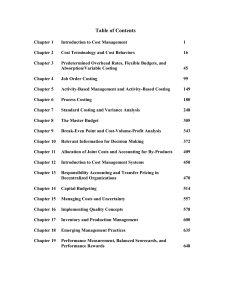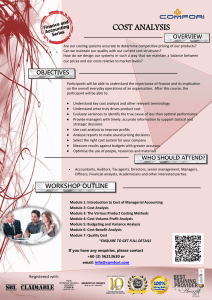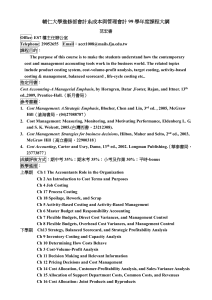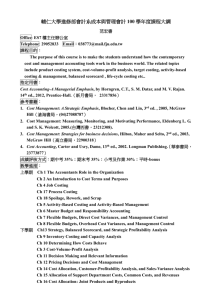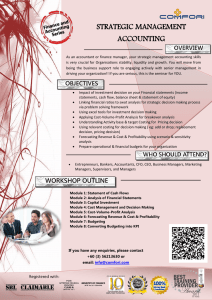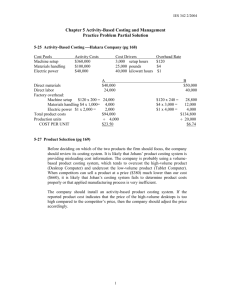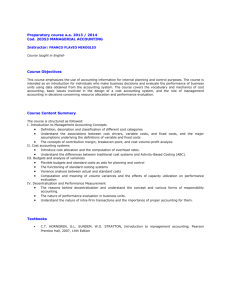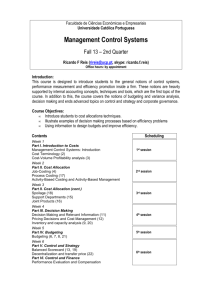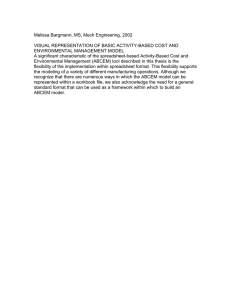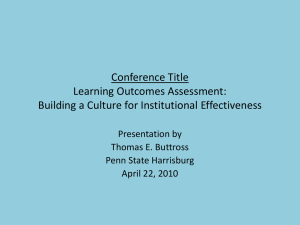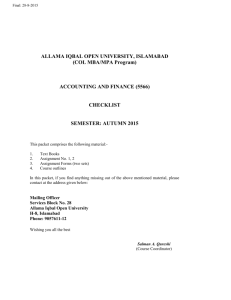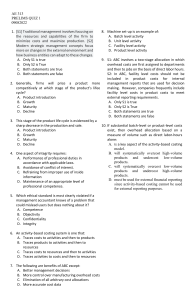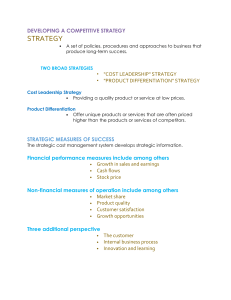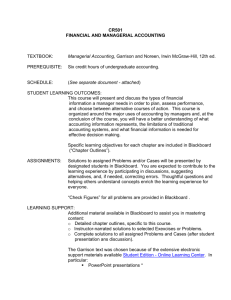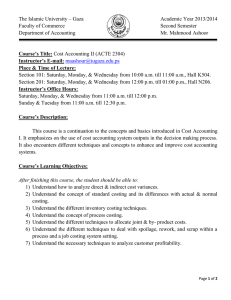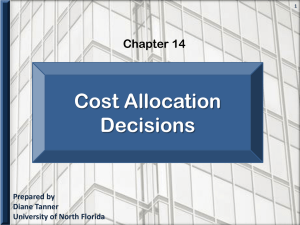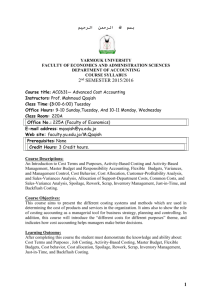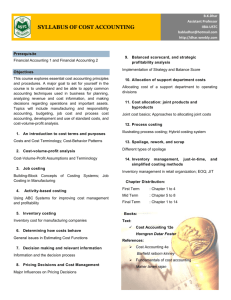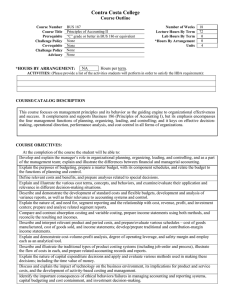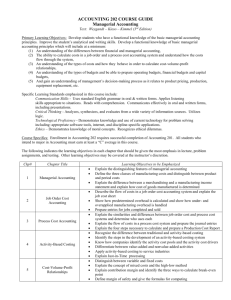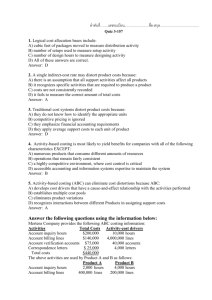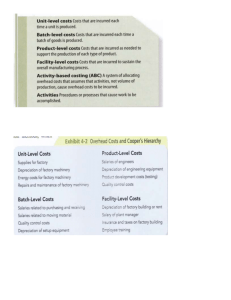ACC 350 – Cost Accounting
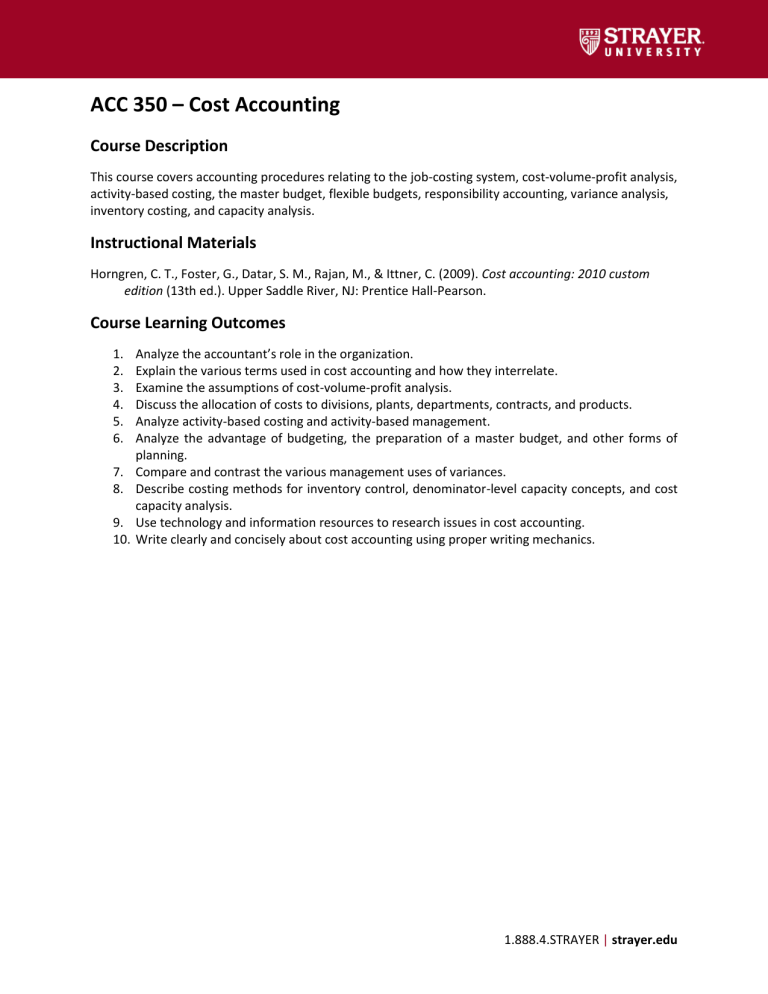
ACC 350 – Cost Accounting
Course Description
This course covers accounting procedures relating to the job-costing system, cost-volume-profit analysis, activity-based costing, the master budget, flexible budgets, responsibility accounting, variance analysis, inventory costing, and capacity analysis.
Instructional Materials
Horngren, C. T., Foster, G., Datar, S. M., Rajan, M., & Ittner, C. (2009). Cost accounting: 2010 custom edition (13th ed.). Upper Saddle River, NJ: Prentice Hall-Pearson.
Course Learning Outcomes
1.
Analyze the accountant’s role in the organization.
2.
Explain the various terms used in cost accounting and how they interrelate.
3.
Examine the assumptions of cost-volume-profit analysis.
4.
Discuss the allocation of costs to divisions, plants, departments, contracts, and products.
5.
Analyze activity-based costing and activity-based management.
6.
Analyze the advantage of budgeting, the preparation of a master budget, and other forms of planning.
7.
Compare and contrast the various management uses of variances.
8.
Describe costing methods for inventory control, denominator-level capacity concepts, and cost capacity analysis.
9.
Use technology and information resources to research issues in cost accounting.
10.
Write clearly and concisely about cost accounting using proper writing mechanics.
1.888.4.STRAYER | strayer.edu
